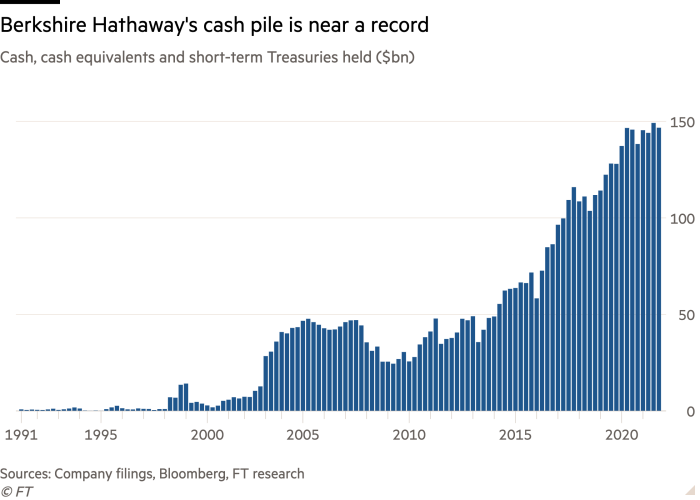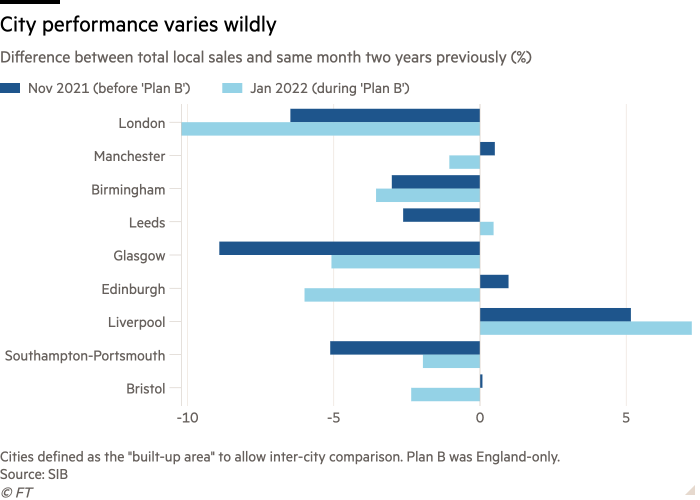[ad_1]
Good morning. This article is an on-site version of our FirstFT newsletter. Sign up to our Asia, Europe/Africa or Americas edition to get it sent straight to your inbox every weekday morning
Vladimir Putin put Russia’s nuclear forces on high alert during a fourth day of bloody fighting in Ukraine, as the west stepped up its efforts to punish Moscow for starting Europe’s biggest military offensive since 1945.
Putin’s move came after US and western allies agreed to impose sanctions on Russia’s central bank and eject some lenders from the Swift messaging systemwhich is crucial for global payments. The EU also announced plans to ban Russian airlines from almost all of European airspace, leaving aircraft leasing companies to recover hundreds of planes.
The sanctions have sowed fear among residents in Moscow and other Russian cities, with queues forming outside empty cash machines as people waited for more money to arrive and concerns grew that the measures could spark financial chaos.
The US, France and Australia have also advised their citizens to make plans to leave Russia following the cancellation of flights into and out of the country.
On the ground, Ukrainian forces continued to resist Russian assaults on the capital Kyiv and Kharkiv, the country’s second-largest city. We’re tracking the latest moves here. Stay up to date with our live blog.
-
Corporate news: Norway’s $1.3tn oil fund said it would dump its Russian investments as part of a wider package of support from Oslo for Ukraine, while BP is seeking to divest its 20 per cent stake in Russian state-owned oil company Rosneft. McKinsey’s global managing partner announced the consulting firm would no longer work for government entities in the country.
-
Sanctions: Here’s our list of the main sanctions the west has imposed on Russia and our explainer on how measures taken against the central bank could hobble the country.
-
At the border: Lviv, a historic city near the Polish border, is bursting at the seams as refugees try to escape the war. The UK government is facing calls to scrap or tone down the nationality and borders bill to allow Ukrainian refugees in.
-
Opinion: Mohamed El-Erian details six factors to guide investors during the turmoil in Ukraine. Putin’s war looks ever more like a miscalculation but that could make him more dangerous, writes our editorial board.
Thanks for reading FirstFT Europe/Africa. To keep up to date with all that’s happening in Ukraine, sign up here to receive my colleague Valentina Pop’s essential newsletter, Europe Express — Jennifer
Five more stories in the news
1. World’s largest SWF to vote against Apple’s pay policies Norway’s oil fund will vote against the iPhone maker’s pay policies, as well as shareholder proposals on transparency, forced labour, a civil rights audit and sustainability disclosures, according to its voting intention.
2. Berkshire Hathaway profits soar, Buffett bemoans few good deals Warren Buffett on Saturday lamented the lack of attractive investments available to his sprawling $713bn Berkshire Hathaway conglomerate, warning that low interest rates over the past two years had inflated valuations across financial markets.

3. Austrian group faces fraud and embezzlement allegations Top executives at packaging company Schur Flexibles are alleged to have embezzled millions of euros and committed accounting fraudstunning investors that lent the group nearly €500mn less than six months ago.
4. Business say they will have to resolve border delays British businesses are sceptical that the government and EU will resolve border problems and believe it will fall to them to reduce costly delays, according to a survey.
5. UK auditors warn of ‘organisational culture crisis’ Directors must take corporate culture more seriously following recent company failures, according to the head of the audit regulator.
Coronavirus digest
-
High street sales are higher than before the pandemic in most of Britain’s local council areas, a Financial Times analysis of consumer data has revealed.
-
Three in 10 respondents agreed that surveillance at work had increased during Covid-19, according to a survey from the UK’s largest federation of trade unions.
-
Russia’s invasion of Ukraine has shattered hopes of a strong global economic recovery from coronavirus — at least in the short term.

The day ahead
UK ‘economic crime bill’ Downing Street will bring forward legislation designed to crack down on the flow of “dirty money” in a rebuke to Russia’s President Vladimir Putin for his invasion of Ukraine.
UN summits The UN General Assembly, which comprises all members of the body, will hold an emergency session over Russia’s invasion of Ukraine. The UN Human Rights Council will also kick off its 49th session in Geneva, with French foreign minister Jean-Yves Le Drian due to speak on security concerns. Kenya will host the fifth session of the UN Environment Assembly, with negotiations focused on a global plastic waste treaty.
Emmanuel Macron to announce re-election campaign The French president is expected to announce his candidacy for re-election in April — click here for an FT guide to the polls.
GDP figures Serbia and Switzerland will report fourth-quarter gross domestic product data. Canada will also release monthly industrial product and raw material price indices.
What else we’re reading
Is fertility a topic for the workplace? When Raina Brands posted updates to her CV on Twitter last year, the focus for the UCL associate professor was not professional but personal: “recurrent pregnancy loss” (2019-2020) and the birth of her son (2021). “I believe it is time to update #academic CVs to be inclusive of women’s whole lives,” she wrote.

All the champions and policies in the world will fail if the culture is hostile, a line manager is unsympathetic or personal information is used against employees © Dom Mackenzie
Donald Trump’s accounts may hold him to account The former US president must be feeling more than usually unassailable, after seeing off two impeachments and a special counsel investigation. But despite his love of bombast, Trump’s legal woes are far from over, writes our editorial board.
The race to a post-dollar world Russia’s invasion of Ukraine is a critical turning point that will have lasting economic consequences. Among them will be a quickening shift to a bipolar global financial system, one based on the dollar and the other on the renminbi, writes Rana Foroohar.
How a Brazilian crime syndicate built a global drug empire Founded as a prison brotherhood 30 years ago in São Paulo, the Primeiro Comando da Capital, or First Capital Command, has evolved into a multinational mafia, with a revenue stream that generates upwards of $500mn every year, according to state prosecutors. Here’s how they did it.
Cancer, Covid and me Miranda Green’s cancer diagnosis coincided with the start of the Covid-19 emergency and her treatment was postponed and precarious. “So began the most surreal and extreme period of my life,” she writes.
Fashion
As Covid-19 restrictions wound down in the UK, designers returned to the catwalk with novel ideas for shows. More than a few of the 37 brands that returned to in-person shows in London this season displayed an urge to do something more considered and memorable.

Richard Quinn was one of many designers setting up memorable shows during London Fashion Week © Mike Marsland/WireImage
Thank you for reading and remember you can add FirstFT to myFT. You can also elect to receive a FirstFT push notification every morning on the app. For more of the Financial Times, follow us on Twitter @financialtimes.
[ad_2]
Source link








